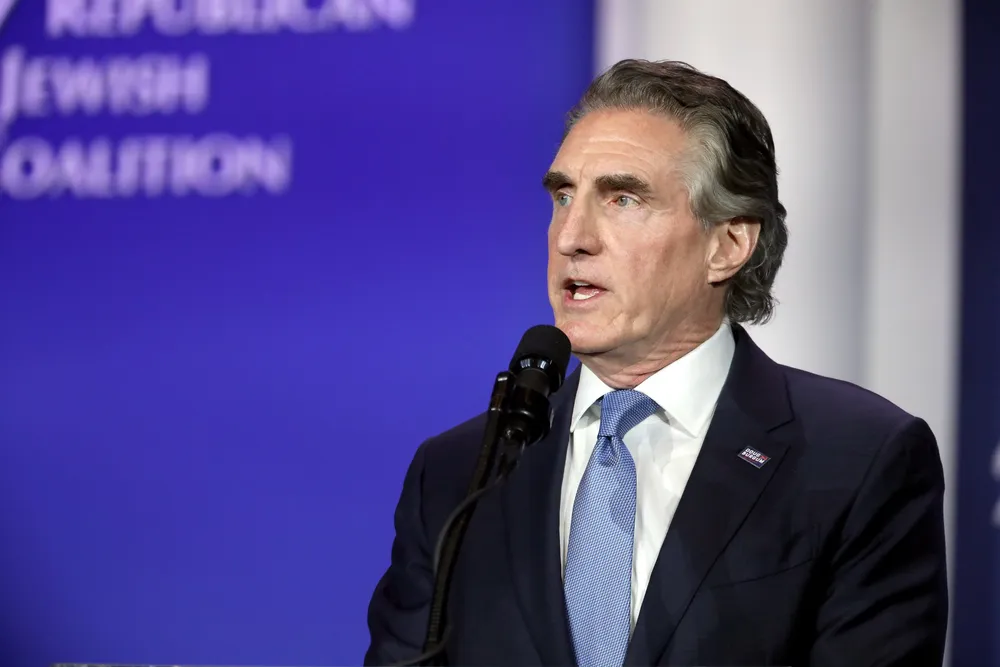Trump's energy czar targets Biden green legacy on first day in job
New interior secretary Doug Burgum signs orders covering oil & gas leases and IRA as fellow pick Chris Wright confirmed at Department of Energy

Donald Trump’s new energy czar Doug Burgum took aim at Joe Biden’s green power legacy on his first day at work as US interior secretary.
Burgum took over at the Department of Interior on Monday following his Friday confirmation in the role by the US Senate, which also approved Trump’s other key energy pick Chris Wright as energy secretary.
Burgum will also chair the new National Energy Council set up to address what the new President describes as a “national emergency” in the sector, with Trump's own preferred remedy being to “drill baby, drill” for oil & gas.
They included revoking orders put in place by Biden that banned new oil & gas leasing in some federal waters and ordering measures to speed up “authorised and appropriate infrastructure, energy, environmental, and natural resources projects”.
Biden's offshore oil & gas leasing ban was made under the Outer Continental Shelf Lands Act and can only be removed by an act of Congress, and Burgum's order will likely be challenged in court.
Burgum additionally directs “a review of all appropriations from the Inflation Reduction Act and Infrastructure Investment and Jobs Act to ensure consistency with President Trump’s energy dominance policies”, referring to two of Biden’s flagship policies to incentivise green energy.
Policies to secure supplies of critical minerals were also highlighted as a priority. Trump on Monday paused for 30 days his tariff threats against Canada that included a 10% level on imports of critical minerals.
Canada is the biggest supplier of minerals to the US, providing key sources of aluminum, copper, nickel, niobium, and uranium, according to Center for Strategic and International Studies, a bipartisan think tank based in Washington, DC.
Burgum will chair a new National Energy Council and be joined by Wright, CEO of oilfield services group and fossil fracking technology provider Liberty Energy.
Administration officials have described the council as a vehicle to oversee and coordinate decision-making by executive branch agencies and departments with a role in federal energy permitting, distribution, electric power generation, regulation, and transportation.
The council's focus is on maximising energy resource development for domestic use and export to allied nations and slashing bureaucratic impediments that are perceived as slowing or impeding it. Trump has promised to cut 10 existing federal regulations for each new one.
How this would be done exactly will become evident in the next several months. Environmental groups are expected to challenge in court the administration's deregulatory actions.
Wright’s selection as energy secretary was yesterday confirmed by 59-38 in the Senate, with seven democrats backing him. Burgum had already been confirmed on Friday by a more decisive 79-18 margin.
US clean energy industry bodies hope Burgum and Wright will be sympathetic to an “all the above” policy that embraces renewables – including wind power, the target of regular abuse from Trump.
Trump’s early days in office have been characterised by a blizzard of policy measures to promote his self-styled mission to “unleash American energy dominance” by promoting fossil fuels and targeting what he has described as the “scam” of Biden’s green policies.
Offshore wind, the subject of a specific executive order on Trump’s first day, has found itself particularly in the president’s sights.
In his Senate hearings, Burgum signalled tolerance for ongoing offshore wind projects, telling Independent Maine senator Angus King: “If they make sense, and they're already in law, then they'll continue.”
(Copyright)